Hindsight
Domaine Bruno Clair
Les Cazetiers Gevrey-Chambertin 1er Cru Pinot Noir 2005
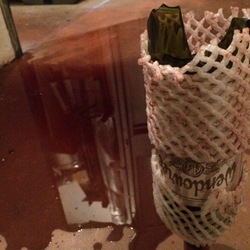
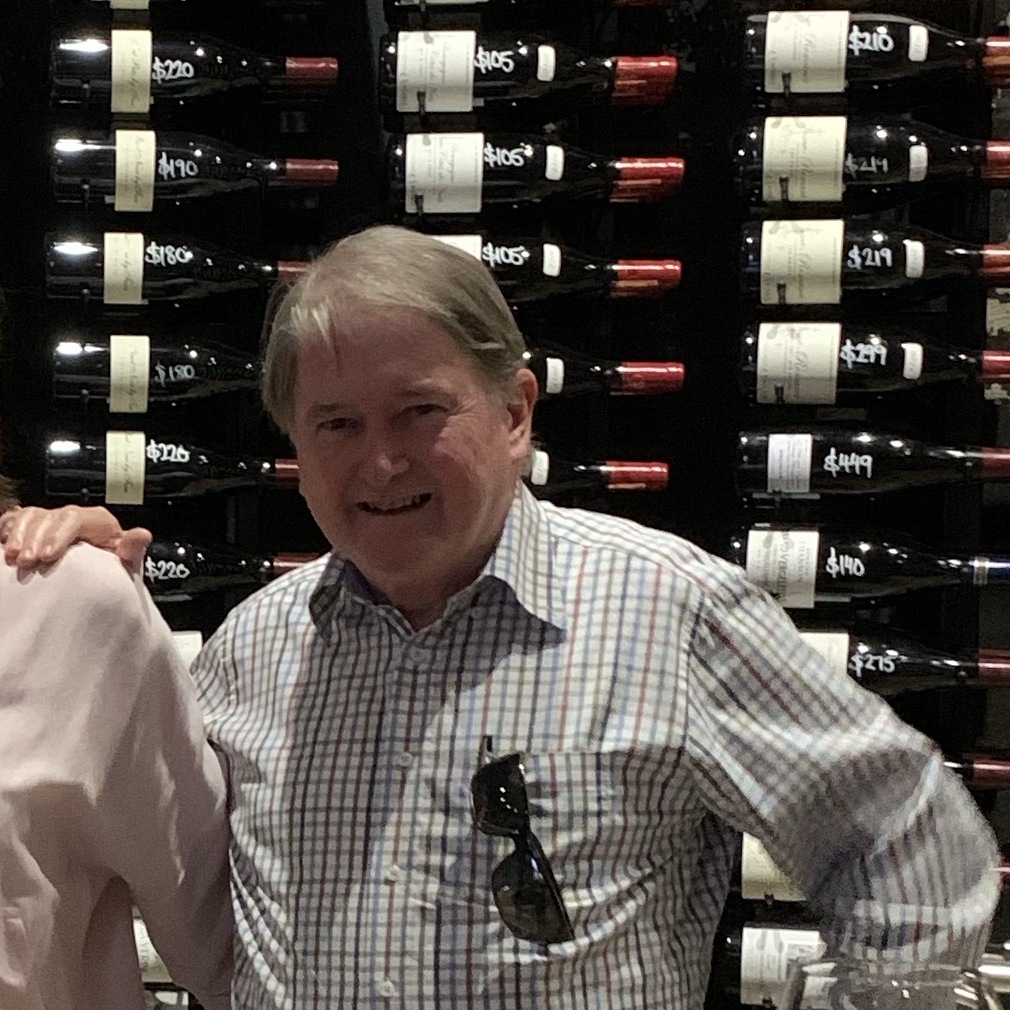
Tenuta San Guido
Bolgheri Sassicaia Cabernet Sauvignon Cabernet Franc 2014
Sassicaia has never been to my liking, but it's probably because I've never drank it with enough age (the 06' which I had a couple of years ago was perhaps the oldest bottle). Nevertheless, it has always been a solid wine in my books and the 14' delivers in this vein. Quite red fruited on the nose, but it's all about blackcurrants on the palate, oak vanillin stood out for me here, green tones - sage and menthol comes to mind, quite silky texture. Air brought out some earthy salinity and some subtle spice notes - cinammon, anise. It's still a fruit bomb for me at this moment, but I think that's partly our fault for not giving it enough aeration.
Another bottle that was popped, poured, and blinded. Didn't do too well here - thought it was a Merlot with the red berry and plum notes, and it didn't quite sport the Cab pyrazine. Somehow thought it might have been New World. In hindsight, not sure why. 85% Cab Sauv, rest Cab Franc. Fermented in tank with indigenous yeasts. 11-15 days' vatting (longer than usual). Aged 24 months in French oak barriques (40% new). — 7 years ago
Rivers-Marie
Summa Vineyard Pinot Noir 2016
Missed out on acquiring this wine in 15, and damn sure didn't want to miss out on the 16's. But, perhaps my desire for this one to be an extra year in the bottle deceived me a little. This wine has excellent structure and balance. The start is a medicinal, herbal dirty black cherry with a nice, balanced middle and acidic finish. But umm....yeah, this one isn't really ready to go yet. Still VERY drinkable. The Coravin found its way to the first glass, and then I asked myself just WTF I was thinking and opened the rest of the bottle (who am I kidding??). Hindsight? Leave this one alone for 2 years. Since I obviously won't be able to hold the other 2 for as long as they should, I'll have to stalk people who have this wine and beg for a pour. — 8 years ago
Mollydooker Wines
Carnival of Love McLaren Vale Shiraz 2012
Took a bit to open up, well more than expected at about 60 min but very good and really well balanced. No heat even at 16%abv.
In hindsight, I would have drank this sooner but still very good. — 8 years ago
Chartogne-Taillet
Sainte Anne Brut Champagne Blend
Rated this lower last night. I thought it was a bit too simple for the price, but in hindsight, there's nothing much to fault. A bit of reduction at the start, which blew off to reveal a deliciously fruity cuvee with hints of oxidation. Excellent dosage at 5.5 g/l. Racy, dry, balanced, with ample complexity. On the lighter side of grower champagne.
Note: For half the cost, I could probably find local cuvees that show somewhat like this. But irrespective of price (f Australian pricing), this was a very good wine. Perfect aperitif. Perhaps it needs some time in bottle. Love the LIP on the back label. Disgorged 2016, 65/35 PN/CH, 60/20/20 2013/11/12. — 9 years ago
Hindsight
Napa Valley Pinot Noir
Delicious - basic and did I say delicious?! Full body blend and easy to drink, not dry. — 9 years ago
Domaine Mugneret-Gibourg
Vosne-Romanée Pinot Noir 2010
Was a little underwhelmed when drinking it, but in hindsight - how did they get so much perfume into the wine? Beautiful balance, fruit core, red, black, bunchy, ripe, discreet tannins, so smooth. Texture and perfume's the key here. Not overly complex. Very good village, but just a little overpriced here in Oz 😣 — 9 years ago
Hindsight
Russian River Valley Chardonnay
Bright and lithe, svelt, balanced spice from the oak, acid is perfect, just creamy enough mouth feel. Great with the carpaccio and capers. This Chardonnay meets in the middle of steely and buttery. Just right. — 10 years ago
Kenzo Estate
Ai Napa Valley Cabernet Sauvignon 2009
Super smooth and mellow while still full bodied. Allergies are preventing me from tasting other flavors. In hindsight, should have waited to open until I could breathe. — 11 years ago
Domaine Pradelle
Saint-Joseph Syrah 2010
In hindsight I would have cellared for another year or two but still drank very nicely. — 12 years ago
Rogue
Mocha Porter
So far, I've enjoyed everything I've tasted from this brewery - the nameworthy Chocolate Stout, the super smooth and nutty Hazelnut Brown Nectar, and perhaps my favourite so far, the orange wine-tasting Combat Wombat. The verdict is the same here. The Mocha Porter's a good beer.
Had a similar dark beer a couple of weeks ago with chocolate and coffee notes all over, but this felt much more nuanced in hindsight. The Kasteel was full on with the chocolate, but the Mocha Porter let's it play second fiddle, allowing the chocolate to play a supporting role to the more "beer-y" malty hoppy elements. Same can be said of the coffee notes. They basically highlight all that bitter sweet toasty elements. Finishes fresh and creamy. Would definitely drink this again! — 6 years ago

Hindsight
20/20 Napa Valley Red Blend 2014
Balanced, easy drinking red. Deep red color. Round but bright — 6 years ago
Montagna
Tre Vigneti Napa Valley Cabernet Sauvignon 2012
Last of these enjoyed tonight and I must say that I was really quite impressed. My last impression of this wine ended in an NR rating, but I think I'm ready to give this one a 91. This wine started rather flabby in the front. This is a parcel of three Lake Hennessy / Pritchard Hill vineyards so in hindsight I probably should have kept the cork in this one for another 10 years. Still pretty delicious tonight. Dark, thick, blackberry cassis, hint of iodine. Middle of this wine shows a gritty, terroir-driven note. The finish is where this one kind of lacks. A little acidic, mature black fruit, black pepper, but really not very long....at all. I think this one could benefit from a couple more years in the bottle, but not sure how much more this one would improve in the bottle, if at all. — 7 years ago
Château Brane-Cantenac
Grand Cru Classé en 1855 Margaux Red Bordeaux Blend 2005
I have a six-pack of this 05. I thought after 10 years in bottle, it would be interesting to check in on its evolution. While tasty, I’ll wait another 8-10 to open another. Even after 2-3 hours in the decanter, it’s still a very young adolescent. On the nose, slightly sour blackberries & dark cherries, dark currants, baked black plum, haunting blue fruits, anise, whiff of spice, steeped tea, dry stones, dry crushed rocks with dry top soil, caramel, vanilla with fresh & dry red florals. The body is thick & full. Tannins are starting to round out. It’s velvety on the palate. The fruits are; bright, fresh & ripe and really show the greatness of the 05 vintage. Dark currants, blackberries, dark cherries, baked black plum, haunting blue fruits, baked strawberries, cherries, raspberries on the long set, dark spice, clay & loamy dry top soil with crushed rocks, dry stones, cigar with ash, graphite, dry stems, slight herbaceous character, mint, used leather, clove, caramel, vanilla, fresh & dry red florals with violets. The round acidity is about perfect. The structure and length are still strong. The balance is in harmony. As for the long finish, it’s lush, ruby, rich and well polished. Photos of; Chateau Brane Cantenac, large wood vats, Henri Lurton and Estate vines. Producer notes and history...Chateau Brane Cantenac began in the early 17th century. At the time, the estate was known as Domaine Guilhem Hosten. Even that far back, wine was produced from the property. In fact, the wine was so highly regarded it was one of the more expensive wines in Bordeaux. It sold for almost as much money as Brane Mouton. This is interesting because of who went on to buy the vineyard in the 1800’s. The Baron of Brane, also known as “Napoleon of the Vineyards”, purchased the Chateau in 1833. At the time of the sale, the estate was called Chateau Gorce-Guy. To get the funds needed to purchase the Margaux vineyard, the Baron sold what is now called Mouton Rothschild, which was at the time of the sale, known as Chateau Brane-Mouton. Not such a good move with hundreds of years in hindsight! In 1838, the Baron renamed property taking his name and the name of the sector where the vineyards were located and called it Chateau Brane Cantenac. The Chateau later passed to the Roy family, who were well-known in the Margaux appellation in those days, as they owned Chateau d’issan. Moving ahead to 1920, the Societe des Grands Crus de France, a group of merchants and growers that owned several chateaux located in the Medoc including; Chateau Margaux, Chateau Giscours, and Chateau Lagrange in St. Julien, purchased Chateau Brane Cantenac. Five years later, M. Recapet and his son-in-law, François Lurton, took over Brane Cantenac along with Chateau Margaux. Lucien Lurton (the son of François Lurton) inherited Brane Cantenac in 1956. Today, the estate is still in the hands of the Lurton family. Brane Cantenac is owned and run by Henri Lurton. After being given the responsibility of managing Brane Cantenac, it was under the direction of Henri Lurton that large portions of the vineyard were replanted. Vine densities were increased, the drainage systems were improved and the plantings were also, slowly changed. The vineyard of Brane Cantenac is planted to 55% Cabernet Sauvignon, 40% Merlot, 4.5% Cabernet Franc and .5% Carmenere. Carmenere was used for the first time in the 2011 vintage. The only other Chateau I know that still uses Carmenere is Clerc Milon. The 75 hectare Left Bank vineyard of Brane Cantenac is essentially unchanged since it earned Second Growth status in the 1855 Classification. At least that is the case with the 45 hectares used to produce the Grand Vin of Brane Cantenac. Those 45 hectares are planted surrounding the Chateau. Those vines are located just in front of the Cantenac plateau and are the best terroir that Brane Cantenac owns. They have other parcels, which are further inland and much of those grapes are placed into their second wine, Le Baron de Brane. Those additional hectares can be divided into 3 main sections. Behind the Chateau, they have 15 hectares of vines on gravel and sand, 10 hectares across the road with sand, gravel and iron and a 13 hectare parcel with gravel called Notton, which is used for their second wine. The vineyard is planted to a vine density that ranges from 6,666 vines per hectare on the plateau and up to 8,000 vines per hectare for the vines located behind chateau, in their sandier soils. The higher levels of vine density are always found in the newer plantings. The terroir of Brane Cantenac consists of deep gravel, sand and clay soil. Experiments in the vineyards are currently looking at becoming more organic in their vineyard management. Today, more than 25% of Brane Cantenac is farmed using organic farming techniques. It is expected that over time, the amount of hectares farmed with organic methods will be increased. Brane Cantenac has gone through 2 relatively recent modernization’s in 1999, when they added began adding the first of their smaller vats to allow for parcel by parcel vinification and then again in 2015 when they completed a much more complete renovation of their cellars and vat rooms. While Brane Cantenac is a traditional producer, they are no stranger to technology as they were one of the first estates to embrace optical grape sorting machines. In very wet vintages, they can also use reverse osmosis. To produce the wine of Chateau Brane Cantenac, the wine is vinified in a combination of temperature controlled, traditional, 22 oak vats, 18 concrete tanks and 20 stainless steel vats that vary in size from 40 hectoliters all the way up to 200 hectoliters, which allows for parcel by parcel vinification. 40% of the fermentation takes place in the oak vats. The oldest vines are vinified in vats that are selected to allow for separate parcel by parcel vinification. The younger vines are vinified more often together in the same vats. However, the Carmenere is entirely micro-vinified, meaning that those grapes were completely vinified in barrel, using micro-vinification techniques. This can also happen because the amount of grapes produced is so small. Some vats can be co-inoculated, meaning they go through alcoholic fermentation and malolactic fermentation simultaneously. At Chateau Brane Cantenac, malolactic fermentation takes place in a combination of French oak tanks and barrels. The wine of Brane Cantenac is aged in an average of 60% new, French oak barrels for 18 months before bottling. The initial 2 months of aging is done with the wine on its lees, which adds more depth to the wine. There second wine is Le Baron de Brane. Le Baron de Brane is not new. In fact, previously, the second wine went under the name of Chateau Notton, which took its name from one of the main parcels where the grapes were planted. During the late 1950’s and into the 1960’s, having a second wine was important as the estate declassified 3 vintages, due to extremely poor, weather conditions in 1956, 1960 and 1963. Production of Chateau Brane Cantenac is about 11,000 cases per year. — 8 years ago
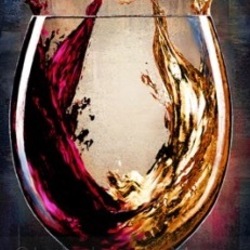
Chateau Montelena
The Montelena Estate Calistoga Cabernet Sauvignon 2010
Needs a lot of time to integrate. Wait until at least 2020. Then you'll have some hindsight. 😎 — 10 years ago
Murdoch James
Blue Rock Vineyard Cabernet Franc 1995
Depleted my entire NZ collection. This was a $2 auction bottle that in hindsight I would have happily paid $30-40 for. Great Cab Franc nose. Body was lighter than expected, almost Pinot like, but not too surprising given the 12% ABV. A nice surprise. — 10 years ago
Hindsight
Reserve Napa Valley Cabernet Sauvignon 2009
Sooo good. Smooth and tasty. — 11 years ago
Weingut Keller
Abts E de Riesling 2014
Ah! The prima ballerina of Rheinhessen. The precise footwork, elegant gait, and undeniable presence. Usually, she takes centre stage, but tonight, the queen of Nierstein has decided to make a forceful announcement during her grand performance - "I will dance instead, and you will love it!" :)
We thought that drinking the 17' Hipping first was a good idea. In hindsight, I'm not even sure why, especially given how the Abtserde was totally eclipsed by it. Nevertheless, the 14' Abtserde was still a great expression of riesling
For me, Absterde is usually the most filigreed and electric of KP's vineyards, but this time, it was showing a more breadth than the typically weightier Hipping. Very powerful with exotic fruits dominating, set on a backdrop of herbs and spice. Concentrated, but in the same vein as the 17' Hipping - new KP in my eyes. I can see why some would prefer KP's older vintages compared to this, which are seemingly more extracted. There's a mineral drive and acidity which really dances on the palate. Admittedly, this finishes a touch hot but nothing to detract from the sheer energy of this wine. It needs time to bring it more balance and finesse I feel. — 6 years ago
Domaine & Selection
Meursault Chardonnay 2007
Domaine Coche Dury is arguably the most sought after internationally of white Burgundy domains according to Jasper Morris MW in his tome “Inside Burgundy “. This wine had aromas of Lemon and Citrus flowers. On the palate Lemon juice - lean with mineral and M plus acidity. In hindsight should have left this last one for a few years. A wine of restraint and elegance - a tinge of honey after a while. For the Coche Dury village style only 25% new wood is used. This wine rarity was suggested to me years ago by a former owner of Prince Wine store and Burgundy nut Phillip Rich. Must seek out later vintages. — 7 years ago
Hindsight
Bella Vetta Vineyard Cabernet Sauvignon
A ~$40 bottle that drinks like an $80 bottle. Good structure, with a solid oak and cassis finish. This is what cab is supposed to taste like. — 7 years ago
La Spinetta
Vürsù Vigneto Starderi Barbaresco Nebbiolo 2008
Supremely elegant. A bit young, in hindsight should have waited. But loved it all the same. — 9 years ago
Vincent Dauvissat
La Forest Chablis 1er Cru Chardonnay 2009
Was a little disappointed. Not as zippy as I expected, quite soft and fat in fact - guess it does speak of the vintage. Also not as mineral as expected. Opened up over the course of dinner, showing more mineral notes on top of the honey, citrus, and lemon curd aromas. Quite lovely creamy texture. Subtle finish.
First Dauvissat and am admittedly not loving it. Picked the wrong vintage I guess. Still a good, balanced wine in hindsight. Will look out for fresher not-so-ripe years next time. — 9 years ago
Hindsight
Estate Grown Calistoga Cabernet Sauvignon 2012
Really nice. Dark fruited, a bit of heat, touch of leather, acid. Good value, too. — 9 years ago
Salinia Wine Company
Saint Marigold Sonoma Coast Chardonnay
Was boldly (and kindly) served this alongside Tissot-both '07 fruit. Though initially nervous about the results of such a matchup, in hindsight it was pretty obvious that the fruits of two bad-asses are doubly better than one ;-) Even against an old world dame, this pretty young thing showed off just as beautifully in her own way. @semillabk — 10 years ago
Robert Mondavi Winery
Reserve Napa Valley Chardonnay 2005
Called it 1er cru Puligny with some age. A little too ripe for that in hindsight, but really darn delicious. — 11 years ago
Hindsight
Napa Valley Chardonnay 2010
6 moths oak... 70% 30 10 a btl — 13 years ago

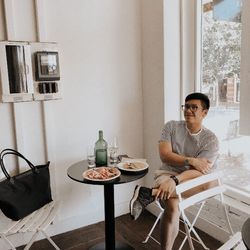






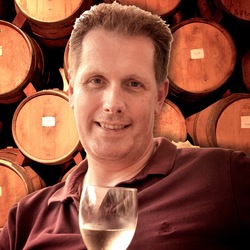



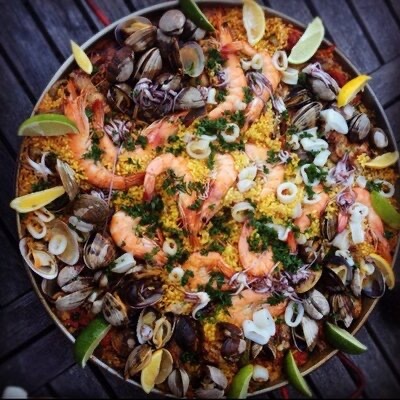

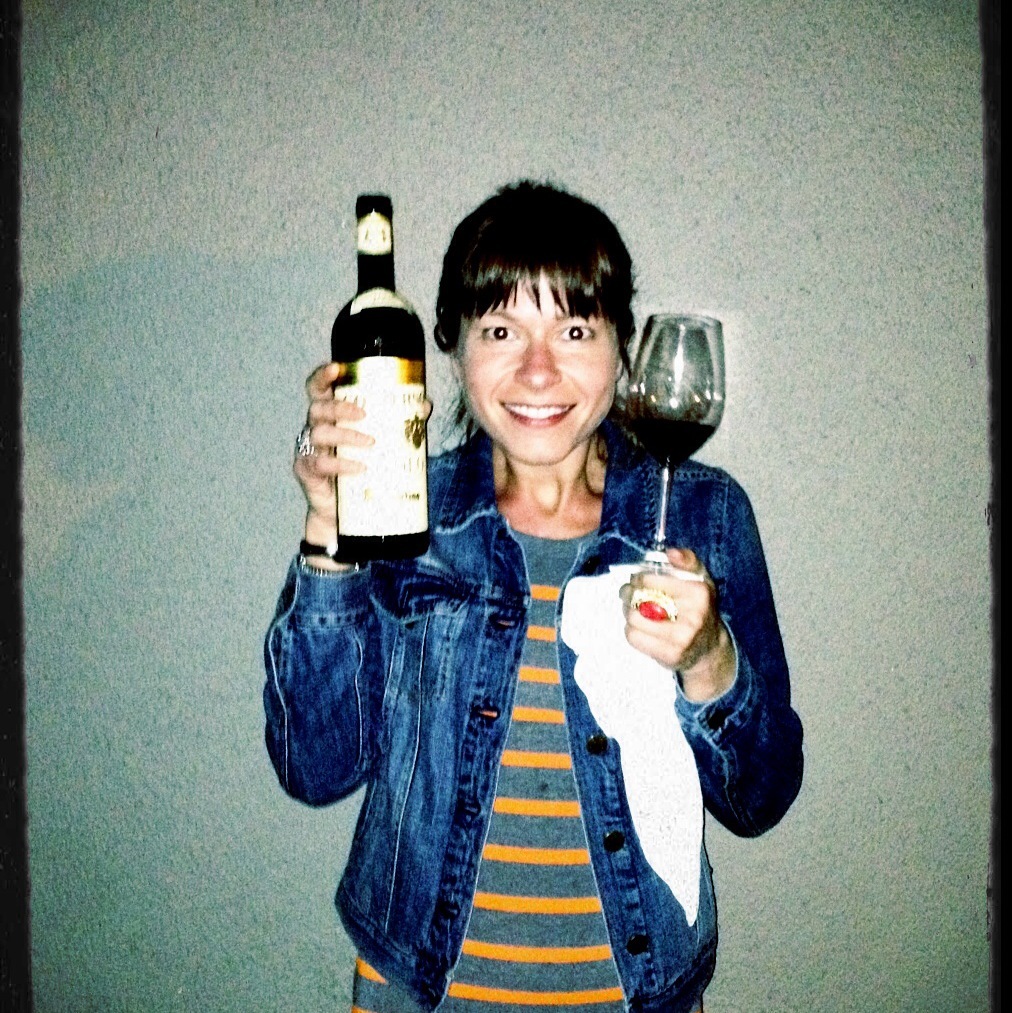
Bob McDonald
Rich crimson in colour- quite dark for a 14 year old Premiere Cru but it is from Gevrey Chambertin. Spicy aromas with ripe cherry and some violet. On the palate ripe red fruits but unfortunately some coarseness and rusticity - lacking in balance. Expected more from the vintage, the vineyard and the producer. Still a little tight and contained. Jancis Robinson’s drinking window to 2025 might make a difference. With the benefit of hindsight would have left this for a few more years. — 6 years ago